Levoquin 250mg Tablet (Levofloxacin 250mg)
$39.00 – $108.00
| Country of Origin | India |
|---|---|
| Dosage Form | Tablets |
| Equivalent Brand | Levaquin |
| Generic Name | Levofloxacin |
| Indication | Bacterial infections |
| Manufacturer | Cipla Ltd |
| Packaging | 5 tablets in 1 strip |
| Composition | Levofloxacin (250mg) |
| Pack Size | 50 Tablet/s, 100 Tablet/s, 150 Tablet/s |
| Levoquin 250mg Tablet (Levofloxacin 250mg) | |||
| Pack Size | Price | Price/Unit | Add To Cart |
| 50 Tablet/s | $39.00 (0.78/unit) | $0.78 | |
| 100 Tablet/s | $70.00 (0.7/unit) | $0.7 | |
| 150 Tablet/s | $108.00 (0.72/unit) | $0.72 | |
What is Levoquin used for?
Levoquin tablets 250mg are an antibiotic medication used to treat mild, moderate and severe bacterial infections, caused by a wide range of susceptible bacteria in various parts of the body. Levoquin-250 tablets are used to treat pneumonia, both community acquired, which is one of the most common serious infectious diseases, usually caused by Streptococcus pneumoniae; also nosocomial pneumonia, which is hospital-acquired pneumonia contracted within 48-72 hours of admission. Levoquin tablets 250mg are also used to treat acute bacterial sinusitis and acute exacerbations of chronic bronchitis. Other non-respiratory infections that Levoquin-250 is used for include, complicated skin and soft tissue infections, which involve deeper infections such as infected ulcers, burns, and major abscesses usually due to Staphylococcus aureus, but also due to Enterococcus faecalis, Streptococcus pyogenes or Proteus mirabilis; also uncomplicated skin and skin structure infections (mild to moderate), including abscesses, cellulitis, furuncles, impetigo, pyoderma and wound infections, due to methicillin-susceptible Staphylococcus aureus or Streptococcus pyogenes. Levoquin tablets 250mg are also used to treat infections of the urogenital system, including pyelonephritis (infection and inflammation of the kidney), complicated urinary tract infections, chronic bacterial prostatitis (infection and inflammation of the prostate), and uncomplicated cystitis. Levoquin tablets 250mg may be used after anthrax inhalation, as post exposure prophylaxis to reduce risk of pulmonary disease.
How does Levoquin work?
Levoquin tablets 250mg contain levofloxacin, a synthetic broad spectrum antibiotic of the fluoroquinolone class that is used to treat various infections with antibacterial activity against a wide range of bacteria, including Staphylococcus, Streptococcus Enterococcus, Proteus and Haemophilus. Levofloxacin works by inhibiting several bacterial enzymes (bacterial topoisomerase IV and DNA gyrase) needed for the bacteria to replicate and repair its DNA. This action of levofloxacin in Levoquin tablets 250mg kills the bacteria by blocking its growth and prevents spread of infection. Levoquin tablets 250mg do not work against viruses which use a different mechanism to grow and replicate.
What does Levoquin contain?
Levoquin tablets 250mg contain the active ingredient levofloxacin, a synthetic broad spectrum antibiotic of the fluoroquinolone class that is used to treat a wide range of infections caused by a many susceptible bacteria in various parts of the body.
Treating bacterial infection with Levoquin
Levoquin tablets 250mg contain levofloxacin, a synthetic broad spectrum antibiotic that is used to treat a wide range of infections caused by a many susceptible bacteria in various parts of the body, including Staphylococcus, Streptococcus Enterococcus, Proteus and Haemophilus. Levoquin-250 tablets are used to treat pneumonia, both community acquired and nosocomial pneumonia; acute bacterial sinusitis; acute exacerbations of chronic bronchitis; complicated skin and soft tissue infections such as infected ulcers, burns, and major abscesses; uncomplicated skin and skin structure infections (mild to moderate), including abscesses, cellulitis, furuncles, impetigo, pyoderma and wound infections; pyelonephritis (infection and inflammation of the kidney); complicated urinary tract infections and uncomplicated cystitis; chronic bacterial prostatitis (infection and inflammation of the prostate). Levoquin tablets 250mg may be used after anthrax inhalation, as post exposure prophylaxis to reduce risk of pulmonary disease. Levofloxacin in Levoquin tablets 250mg works by inhibiting several bacterial enzymes needed for the bacteria to replicate and repair its DNA, which kills the bacteria by blocking its growth and preventing spread of infection.
Related Product
What are the side effects of Levoquin?
The most commonly reported side effects when taking Levoquin tablets 250mg include insomnia, headache, dizziness, diarrhoea, vomiting, nausea, abdominal pain, constipation, headache, rash, altered taste. Very rarely taking Levoquin tablets 250mg is associated with an increased risk of tendonitis and tendon rupture with increased risk if you are over the age of 60 years, taking systemic steroids or have received a kidney, heart or lung transplant.
When should Levoquin not be used?
You should not use Levoquin tablets 250mg if you:
- are allergic to levofloxacin or any ingredients in Levoquin
- are pregnant or are breastfeeding
- have liver or kidney disease
- have epilepsy or myasthenia gravis
- have a history of tendon disorders related to levofloxacin administration
- have diabetes as Levoquin can affect blood glucose levels and these should be closely monitored while taking Levoquin
- are giving Levoquin to children or growing adolescents
- are taking medicines that interact with Levoquin including sucralfate for reflux and ulcers, antacids containing magnesium and aluminium, multivitamins preparations with zinc, the antiviral didanosine, some NSAIDs like theophylline, probenecid for gout, cimetidine for heartburn and ulcers, , the immunosuppressant cyclosporine, anticoagulants like warfarin
What medications interact with Levoquin?
Several medications interact with Levoquin tablets 250mg and should either not be taken while you are taking Levoquin or only after discussion and instruction from your doctor:
- Drugs that cause a serious reaction with Levoquin: some NSAIDs like theophylline,
- Drugs that affect Levoquin: sucralfate for reflux and ulcers, antacids containing magnesium and aluminium, multivitamins preparations with zinc, the antiviral didanosine, probenecid for gout, cimetidine for heartburn and ulcers
- Drugs that are affected by Levoquin: , the immunosuppressant cyclosporine, anticoagulants like warfarin
How should Levoquin be taken?
You should take your Levoquin tablets 250mg swallowed whole with a glass of water with or without food, once or twice daily. The dose you take and how often depends on what you are being treated for and your doctor’s recommendations. You should continue to take your Levoquin tablets 250mg for as long as recommended by your doctor, which is usually for 7 to 14 days, but the dose or length of time you need to take your tablets for may be increased depending on the severity of your infection and your response to treatment.
How long should you take Levoquin?
You should continue to take your Levoquin tablets 250mg for as long as recommended by your doctor, which is usually for 7 to 14 days, but the dose or length of time you need to take your tablets for may be increased depending on the severity of your infection and your response to treatment.
Missed dose of Levoquin
If you miss a dose of Levoquin tablets 250mg take it as soon as you remember, unless it is time to take the next dose, then skip the missed dose. Do not take a double dose.
How should Levoquin be stored?
You should store your Levoquin tablets 250mg below 25°C in a cool dry place.
Be the first to review “Levoquin 250mg Tablet (Levofloxacin 250mg)” Cancel reply
Related products
Antibiotics
Antibiotics
Antibiotics
Antibiotics
Antibiotics
Antibiotics
Antibiotics
Antibiotics


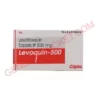



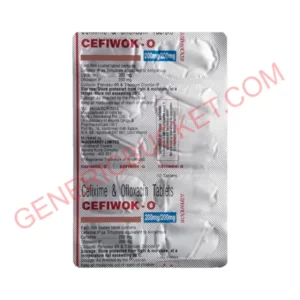
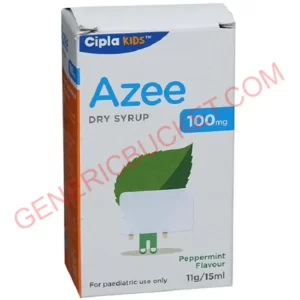
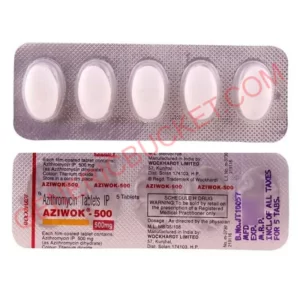

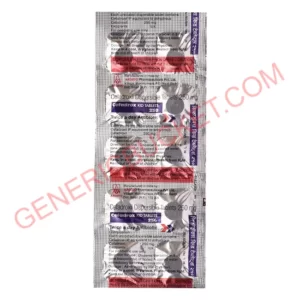
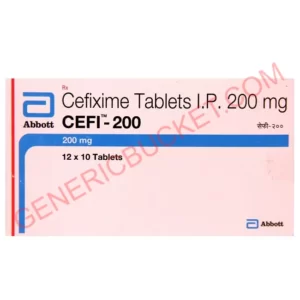

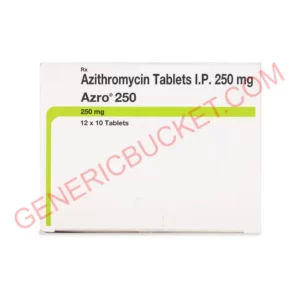

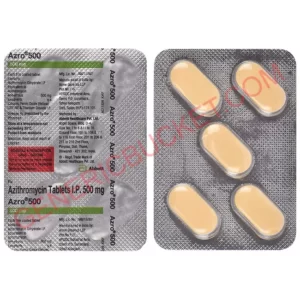

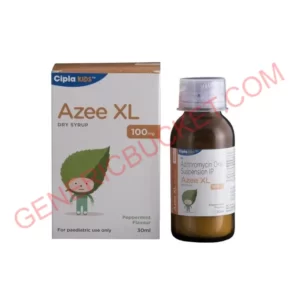
Reviews
There are no reviews yet.